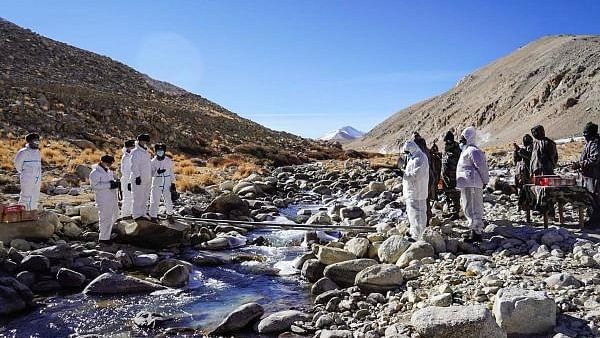
Representative image showing India and Chinese troops in Ladakh.
Credit: PTI File Photo
New Delhi: India and China have begun troop disengagement at the two friction points at Demchok and Depsang Plains in eastern Ladakh, official sources said on Friday.
The process follows an agreement firmed up between the two countries on patrolling and disengagement of troops along the Line of Actual Control (LAC) in eastern Ladakh, a major breakthrough to end an over four-year standoff.
The disengagement of troops has begun at two friction points at Demchok and Depsang Plains, the sources said.
Adhering to agreements between the sides, Indian troops have begun to pull back equipment to rear locations in these areas, another source said.
The ties between the two Asian giants nosedived following a fierce clash in the Galwan Valley in June 2020 that marked the most serious military conflict between the two sides in decades.
Foreign Secretary Vikram Misri on October 21 told reporters in Delhi that the agreement was finalised following negotiations over the past several weeks and that it would lead to a resolution of the issues that arose in 2020.
On October 23, Prime Minister Narendra Modi and China President Xi Jinping endorsed the agreement on patrolling and disengagement along the LAC in eastern Ladakh during their bilateral meeting on the sidelines of the BRICS Summit in Kazan in Russia.
Referring to New Delhi's consistent position on the eastern Ladakh row, Misri, at a media briefing in Kazan after the bilateral meeting, had said that restoration of peace and tranquillity in the border areas would create space for returning towards the path of normalisation of bilateral relations.
"This meeting happened, as you are all aware, close on the heels of the disengagement and patrolling agreement and the resolution of issues that had arisen in the India-China border areas in 2020," he said.